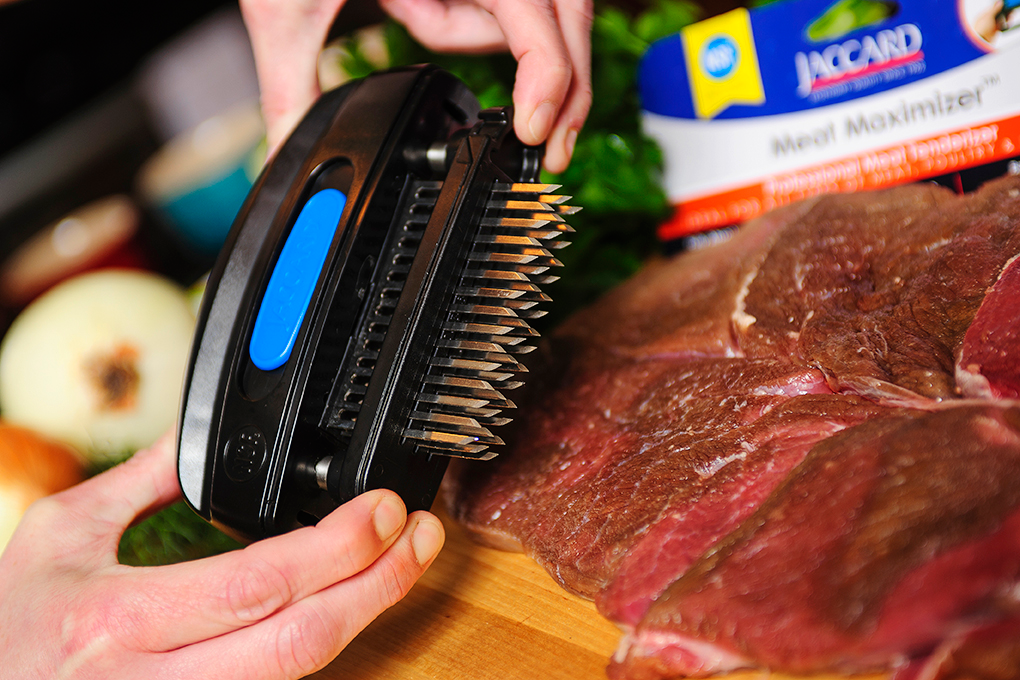What Can I Use If I Don't Have A Meat Tenderizer? Unique Alternatives
Written By James Morgan
Barbecuing is an art form adored by many, especially by passionate barbecue enthusiasts. However, the crux of a perfect barbecue lies in the tenderness of the meat. Grilling enthusiasts often ask, What can I use if I don't have a meat tenderizer? Finding yourself without a meat tenderizer shouldn't spell culinary disaster. In this comprehensive guide, we will explore several effective alternatives that can amp up your barbecue game and ensure your meat is perfectly tender every time.

The Importance of Tenderizing Meat
At the heart of every delicious barbecue is tender meat. Why is this so crucial? Tenderizing breaks down the muscle fibers and connective tissues, ensuring a succulent and flavorful result. Whether you prefer ribs, brisket, or a juicy T-bone steak, knowing how to tenderize is a must.

Alternatives to Traditional Meat Tenderizers
Common Kitchen Tools
When you don't have a meat tenderizer on hand, your kitchen is still brimming with tools that can do the job just as well. Here are the top culprits:
- Rolling Pin: This baking staple is ideal for flattening and tenderizing meat. Wrap your meat in plastic wrap or parchment paper to avoid any mess. Read more.
- Cast Iron Skillet: The weight of a cast iron skillet and its flat surface can help pound and break down tough meat fibers quite effectively.
- Wine Bottle: An empty wine bottle, with its sturdy build, can serve as a decent meat mallet.
- Cutting Board: Using another cutting board to sandwich your meat and then applying pressure with your hands can mimic the effect of a meat tenderizer.
Household Items
Your house contains various items that might not be your first thought for tenderizing meat but work surprisingly well:
- Aluminum Foil: Crinkle up some aluminum foil, place it over the meat, and use something heavy, like a can, to pound it.
- Hammer: Ensure its clean and wrapped in foil before gently using it to tenderize meat.
- Keys: A set of keys can assist in scoring and tenderizing your meat in a pinch.
Natural Tenderizing Methods
Mother Nature provides natural tenderizers that are highly effective:
- Pineapple Juice: The enzymes present in pineapple juice can work wonders for tenderizing meat.
- Vinegar and Lemon: Both have acidic properties that break down collagen and muscle fibers in meat.
- Buttermilk: Its not only great for marinating but also does an excellent job in making the meat tender.
- Baking Soda: Make a paste with water and apply it over the meat to tenderize it. Simply rinse off before cooking.

Expert Tips for Barbecue Enthusiasts
For barbecue lovers, knowing the ins and outs of meat tenderizing can elevate your barbecuing experience. Here are expert tips to keep in mind:
- Age Matters: Older meat tends to be tougher, so tenderizing is crucial.
- Rest Period: Allow the meat to rest after tenderizing, ensuring the internal juices redistribute evenly. Find out more.
FAQ
What can I use if I don't have a meat tenderizer?
Several items can substitute for a meat tenderizer including a rolling pin, cast iron skillet, wine bottle, aluminum foil, and even keys. Natural methods like pineapple juice, vinegar, lemon, buttermilk, and baking soda are also highly effective.
Does the method of tenderizing change for different types of meat?
Yes, tougher cuts like brisket or ribs may require physical tenderizing, while less tough meats can benefit more from marinating with acidic tenderizers.
How long should I let the meat rest after tenderizing?
Letting the meat rest for at least 10-15 minutes allows the juices to evenly distribute and results in a juicier and more flavorful outcome. Learn More.
For more tips and techniques, visit Southern Living.
As an Amazon Associate, I earn from qualifying purchases.



